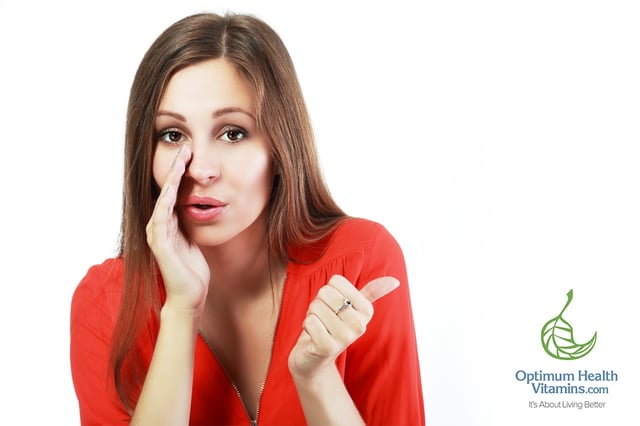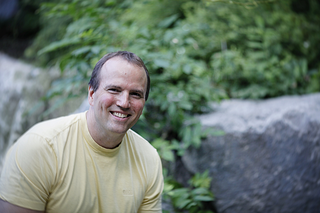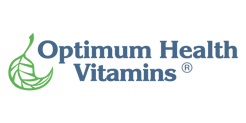 To the untrained eye, CBC's recent stories on Natural Health Products (NHPs) seemed a convincing indictment. Yet the CBC's selective exclusion of certain details and viewpoints, besides being deceptive, makes it clear that these media pieces were specifically directed at fostering mistrust and discouraging the use of NHPs. Though recent CBC features contained many more slanted aspects than can be discussed here, this article sheds light on a few of the most misleading omissions.
To the untrained eye, CBC's recent stories on Natural Health Products (NHPs) seemed a convincing indictment. Yet the CBC's selective exclusion of certain details and viewpoints, besides being deceptive, makes it clear that these media pieces were specifically directed at fostering mistrust and discouraging the use of NHPs. Though recent CBC features contained many more slanted aspects than can be discussed here, this article sheds light on a few of the most misleading omissions.
You weren’t told which supplements were manufactured in Canada versus the USA.
In the Fifth Estate's program, entitled "Magic Pills"... (a title which indicates bias right off the bat)...the first and most glaring omission was that no distinction whatsoever was made between supplements manufactured in the United States versus Canada, where industry standards are much more stringent. In fact, the CBC seemed to purposely blur the issue.
Canadian manufacturing standards mandated by law include manufacturer site licensing, pre-market authorization/product licensing, testing of ingredients, and mandatory Good Manufacturing Practices. Many Canadian manufacturers also go far beyond what is required by the government, and do third party testing. In fact, NHP consumers and industry members argue the Canadian regulations are too strict, because they have lead to the loss of thousands valuable and effective products, and stifled new product innovation. But a positive aspect of the NHP Regulations is they have provided a much higher level of product quality assurance. Of course, it’s possible that some of the supplements that failed testing were Canadian…but it’s much more likely that they were American, where adulterated products are common.
The lumping of US with Canadian products was particularly relevant when it came to the University of Guelph study on DNA Barcoding. The study which "randomly selected 44 herbal supplements sold in Canada and the US" found that 60% contained ingredients not listed on the labels, and that 1 in 3 contained substitutions where no DNA material corresponding to the ingredients listed on the label was in the bottle.
You weren't told about potential flaws in the testing method.
DNA barcoding has potential flaws. For example, if an active ingredient is extracted, then purified, and put into a neutral base, there may be no genetic material to test.
Also, the study tested herbal capsules, i.e. only one type of NHP. Yet the Fifth Estate headline blares: "University of Guelph study shows 1 in 3 vitamins and supplements proved to be fakes”. Herbs are not vitamins!! Nor are they minerals, probiotics, enzymes, fats, or proteins. Yet the CBC took the opportunity to lump all NHP supplements into the same group... convenient wording if you're agenda is to discredit the entire industry.
The "lumping" together of all NHP categories, as well as those from different countries is a common reporting technique used in anti-NHP propaganda.
For example, for years this was done using tainted products manufactured in China. In this case it is absolutely relevant to know how many of the herbal supplements that didn’t meet label claims were manufactured in the U.S.? All of them?
You weren't told which supplements passed all tests.
Moreover, if the study was so sure of its results, why didn't the authors release any of the specific product or companies' names? It's understandable that to avoid litigation the so-called "fakes" were excluded. But, if the point was to altruistically guide and help consumers, why wouldn't the study release the names of the valid products that met all label claims? Wouldn't you like to know this?
It’s because this wasn't the goal. The author of the study (Steven Newmaster) is trying to sell the barcoding technology. Releasing which products passed all tests with flying colors doesn’t support this quest. Besides the boost in business they would get, those companies wouldn't purchase the technology. Much better to keep the entire industry on the defensive, than to identify manufacturers meeting all standards!
You weren't told that if natural supplements were treated like pharmaceuticals we would lose access to most NHPs.
The episode then went on to feature the story of "Purity First" products which were initially manufactured in someone's home in Long Island, NY!! Not in Canada where you require a site license to manufacture NHPs! But of course the CBC made no mention of this, and made a point of reviewing how lax the Regulations are in Canada, and repeatedly supported the opinion that NHPs should be treated the same as pharmaceuticals.
In reality, not only are Canadian NHP regulations very strict relative to other countries, but what the CBC failed to mention was that if NHPs were governed by the same standards as pharmaceuticals, (which the guests kept insisting they should be), the vast majority of them would disappear. This is because they are not patentable, so the required double-blind studies are financially unfeasible.
They also didn't tell you that hundreds of thousands of studies on NHP ingredients have already been done worldwide, and that further trials for every NHP would be absolutely redundant. For example, with all the tens of thousands of studies on the benefits of curcumin, it would serve no purpose to demand rigorous trials, other than to prevent entry onto the market. Also, only a select few companies would be able to afford the trials....and big surprise, they would likely be pharmaceutical companies!
Next consider that curcumin, a constituent of turmeric, has been consumed for thousands of years as a spice in curry. And think about it for a second: is it appropriate that NHPs, which have never been responsible for a death in Canada in over 60 years, should have to meet the same standards as even the most basic drugs like Aspirin and Tylenol that kill people every year? The CBC kept mentioning the potential dangers of NHP’s. Yet, recently it was released that in 2014, (just like several years before it), there were no deaths from any supplements in the U.S. either....a country with 10X the population of Canada.
Though what’s at issue here is quality assurance, the CBC took the opportunity to revisit and regurgitate a bunch of biased views from the establishment that have been around forever.
Imagine, doctors and medical professionals being critical of natural health products. What’s new?
You weren't told that the episode's main (American) guest has conflicts of interest.
Paul Offit, M.D. from the U.S. Food and Drug Administration, (not Health Canada), is an outspoken critic of natural supplements. It was totally obvious what his stance on them was going to be before he said anything. But did the CBC provide any balanced opposing interview from any of the thousands of MDs, NDs, or PHDs who are supportive of natural products, and have studied them extensively? No! It was a totally one-sided, biased approach for which the CBC is being criticized.
It's also relevant that Paul Offit is an immunologist and vaccine inventor who became a millionaire off royalties for a rota-virus vaccine he developed with Merck. He is perhaps most noted for his statement that you could safely administer 10,000 vaccines to a baby! After all his warnings about the dangers of vitamin supplements, where are the supporting statistics? On the other hand, if vaccines are so safe, why was it necessary for the U.S. to establish the National Vaccine Injury Compensation Program...with similar programs set up in several other countries?
There seems to be a pervasive "Us against Them" mindset in the medical profession that as NHPs gain credibility, and more people use them, more will also increasingly shy away from vaccines....and Paul Offit wouldn't want that to happen!
The CBC made no attempt to question WHY 75% of Canadians use NHPs.
So why do so many Canadians use natural health products? Is it because we are gullible? Or is it because Canadians are becoming clear that modern medicine definitely does not have all the answers, often does more harm than good, and often does not work?
Of course medicine has saved millions of lives, and performed countless heroic acts in acute situations, but when it comes to chronic disease, natural strategies often produce better results.
Alternatively, is the CBC’s coined term: “love-affair" that Canadians have with NHPs due to the fact that while taking responsibility for our own health, by in large, NHP’s work to produce the results Canadians want, without a variety of side-effects? Be it reduced inflammation, less pain, better mood, more energy, etc., natural products often help address the root causes of chronic disease, rather than just managing symptoms... and we are smart enough to know when something has helped, or not!
Be Well! Stay Well!
John
Over to you…do you have any input on this subject? Please leave a comment below.

Disclaimer: The above information is provided for informational purposes only and is not intended to replace the advice of your physician.


